⚠️ The official Quapaw Nation language dictionary is not yet available online. In the meantime, we encourage you to visit the Supernaw family's online dictionary here. Check back soon for updates!
Dictionary Sources
This dictionary is an evolving body of work; even though our language has been dormant for many decades, there are a handful of researchers and archivists who have and continue to document and analyze it. We cross-reference and verify dictionary entries utilizing many bodies of work as cited in the sections below:
Written Works
The initials in brackets are placeholders for cited works¹ authored by the following individuals:
- [ASG] Albert Samuel Gatschet
- [BP] Billy Supernaw Proctor
- [FS] Frank Thomas Siebert Jr. (with informants Frank Valliere and Victor Griffin)
- [GI] George Izard
- [LH] Louis Hadley
- [JOD] James Owen Dorsey
- [MH] Mark Raymond Harrington
- [RR] Dr. Robert L. Rankin
1 Note that the reliability and accuracy of these sources varies; some sources are relied upon more than others. Click here for more information.
Source Reliability
Click any of the dropdowns below to expand notes on each source's reliability and accuracy. You may click anywhere outside of this pop-up dialog to close it.
Albert Samuel Gatschet
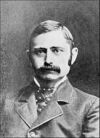
Frank Thomas Siebert Jr.
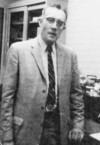
George Izard
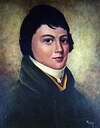
James Owen Dorsey
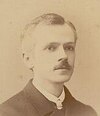
Lewis F. Hadley
Lewis F. Hadley was a linguist and missionary who lived in Indian Territory (what is now Arkansas) during the late 1800s. His work is extremely unreliable. Most aspects of Hadley’s system of spelling fail to accurately represent the pronunciation of Quapaw. There is no consistency with vowels and consonants, in addition to a lack of understanding of the basic Dhegiha language concepts and sounds. Hadley's work is referred to minimally in our language work.Dr. Robert L. Rankin
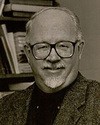
List authored by Billy Supernaw Proctor and Tehya Buffalo.
Audio Recordings
In addition to written sources, our dictionary is largely compiled from numerous recorded interviews with the following Okáxpa speakers:
- [AB] Anna Beaver (1888-1970)
- [AG] Alice Crawfish Gilmore (1894-1979)
- [BS] Bill Supernaw (1912-1991)
- [FR] Fannie Goodagle Richards (1893-1971)
- [LB] Louis Ballard (1931-2007)
- [LQ] Louis Quapaw (1910-1970)
- [MR] Mary Lane Redeagle (1890-1974)
- [MW] Mary Wilson (1913-1970)
- [MS] Maude Supernaw (1872-1972)
- [OM] Odestine McWatters (1918-1997)
Dhegiha References
When tackling a continuity error or similar problem in our language work, we often cross-reference our own information with Quapaw's neighbors in the Dhegiha language family: Osage, Omaha, Kanza (Kaw), and Ponca. Our five tribes were once a united people, so our languages share many similarities. The Dhegiha sources our department utilizes most frequently are as follows:
- Omaha & Ponca Digital Dictionary chiefly compiled from the written works of James Owen Dorsey.
- Umóⁿhoⁿ Iye of Elizabeth Stabler (1977) compiled by Mark Swetland.
- A Dictionary of the Osage Language (1932) compiled by Francis LaFlesche.
- Osage Online Dictionary compiled by the Osage Nation language department.
- Osage Grammar (2004) and Osage Dictionary (2009) both compiled by Carolyn Quintero.
- An Annotated Dictionary of Kaw (2012) by Dr. Linda A. Cumberland & Dr. Robert L. Rankin
- Written works of James Owen Dorsey on the Omaha language (unavailable online), courtesy of the Smithsonian archives.